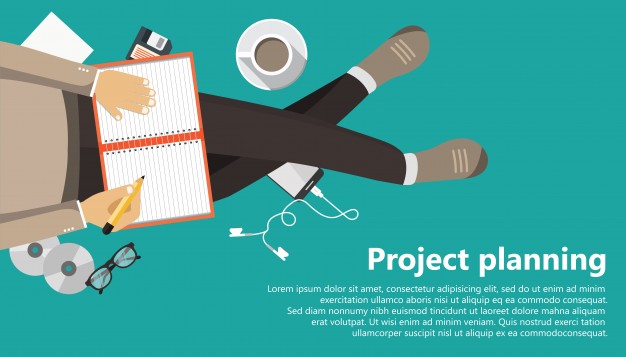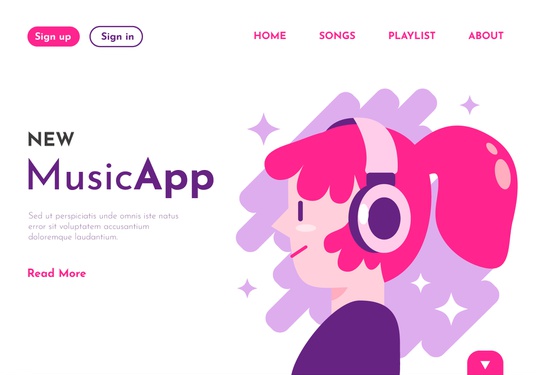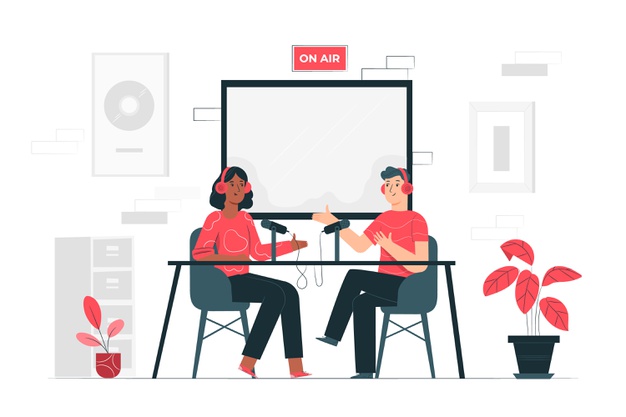Sarah Rhea Werner a Former Contributor to ForbesWomen and Jay Baer, the vastly experienced host of the award-winning Social Pros podcast (having interviewed over 350 guests and been interviewed over 150 times for podcasts) both emphasize that, although seemingly more passive, the art of being interviewed is actually just as active as the interviewer’s.
Here are some of their top tips on being a great podcast guest
Setting Up

Prepare your message
Your message will be stronger if it’s at the forefront of your mind while you record. To prepare your message, review any previous email/Twitter/snail mail communications with your host to get a lock on the topic or message
<strong>Use a good(-ish) mic, if you can</strong>
You don’t need to invest in a $600 microphone to be a good podcast guest. But do be aware that a podcast is an audio medium, and a podcast is judged by the quality of not only its content but its audio. So if you have a mic, hook it up and use it—your host will appreciate your attention to sound quality and be more likely to invite you back.
<strong>Use towels to dampen the sound</strong>
If you’re recording your side of the interview from an office or desk or anywhere with lots of hard, flat surfaces and 90-degree angles, do what you can to dampen the sound. Those hard, flat surfaces create a tinny, echo-y sound while dampening helps create a richer, more intimate sound for listeners.
Lay a towel over any hard surfaces in the immediate recording area, close the curtains over nearby windows—basically, do whatever you can to absorb excess soundwaves.
<strong>Hydrate!</strong>
Drink a glass of water 20-30 minutes before your interview, and be sure to have a beverage such as room-temperature water or warm tea on hand while recording. If you’re recording after a particularly long day. You might even want to apply lip balm before recording. Dry mouths and lips tend to make “mouth sounds”—those sticky, clicking, smacking sounds that are irritating and unpleasant for listeners.
<strong>Banish the pets (and maybe kids, friends and significant others) while recording.</strong>
Sudden torrents of barking in the midst of conversation can be distracting for you and your host, unpleasant to listen to and even potentially frightening or startling for your listeners.
Before the Show

<strong>Listen to at least two full episodes</strong>
You want to have a feel for the cadence and rhythm of the podcast.
<strong>Note any consistent segments or “bits” the show uses</strong>
Many shows have a format that includes one or more segments that are the same every week. As a podcast guest, you want to know what these segments are, so you’re prepared to participate.
<strong>Read the reviews of the podcast</strong>
Go to iTunes and/or Chartable and look up the podcast and read the reviews. It will give you a better sense for the audience and what they like (or don’t like) about the show.
<strong>Prepare at least three stories you can unfurl at any time</strong>
The truth is that being a great podcast guest isn’t about answering questions, it’s about telling stories. Make sure you have at least three relevant stories that you can tell whenever and however.
<strong>Do the requested podcast prep</strong>
Increasingly, podcast hosts ask their guests to complete a pre-show questionnaire to provide information and insights before the recording. This is the same system used by talk show hosts in the “pre-interview” with producers.
During the Show

<strong>Have the best possible audio set-up</strong>
Nothing kills a podcast like bad audio, and it’s made geometrically more difficult in multi-host and multi-guest situations where everyone is in different locations, calling in via the Web. Pay attention to the background noise (even air conditioning or heating hum).
<strong>Use the host(s) name</strong>
Sounds obvious, but you’d be surprised. As a podcast guest, you are just that…a guest. Use the host(s) name(s) in some of your answers. Keep things warm and conversational. This is not a courtroom appearance!
<strong>Keep your answers concise</strong>
Almost all podcasts have an approximately recording length they are trying to hit. For my show, it’s 39 minutes (we usually blow it and end up at 43 or 44). As a podcast guest, you indeed want to tell good stories, but wherever possible keep your answers punchy and tight. This gives the host(s) air time and allows them to ask more questions and get to their standard segments, etc. without running short or having to rush the show.
<strong>Have a specific call-to-action for listeners</strong>
It’s common for host(s) to ask guest(s). “tell the audience how to connect with you” or such. The best way to handle this is to create a simple landing page ONLY for listeners of that show, and include a special offer.
After the Show

<strong>Send a thank you note</strong>
The podcast host(s) are helping you spread your message. Give them some love. I often use a quick video thanks via the Vidyard GoVideo plug-in for Chrome.
<strong>Promote the episode</strong>
The host(s) want podcast guests to amplify the episode, helping them reach a larger potential audience. They may provide shareable graphics to promote the episode in social media. Use them. Tag the hosts wherever possible in your posts.
<strong>Recommend guests</strong>
If you know other people who would be a great podcast guest for this particular show, recommend them to the host(s). They’ll appreciate the referral.
<strong>Ask for referrals</strong>
By the same token, after the show airs, send a quick email to the host(s) thanking them again, and ask what other podcasts they know about where you would be a good fit as a guest. These referrals will help you get in the door with other shows.


